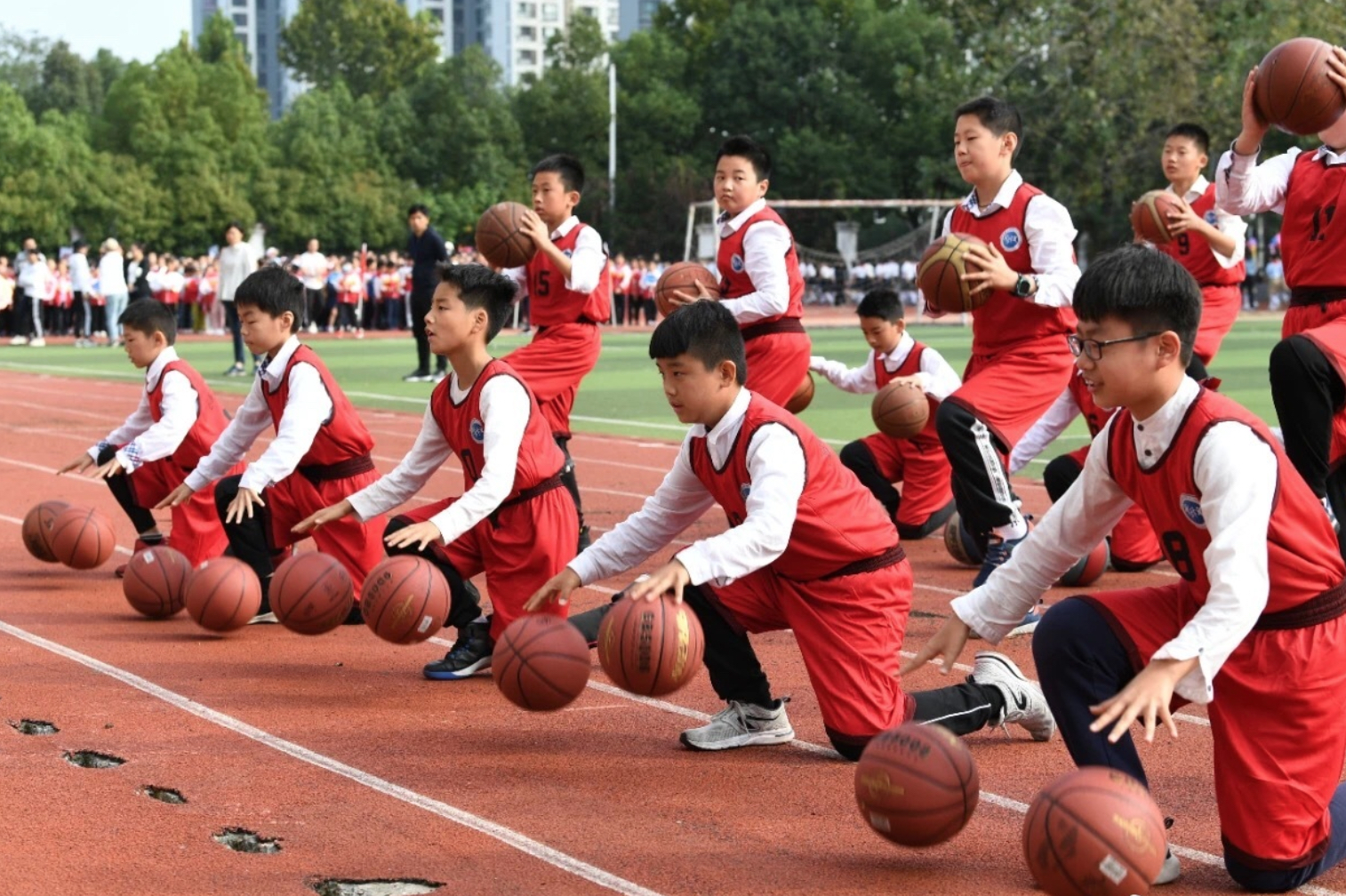Xi Jinping wants a nation of fit children, and schools are going all out to hire gym teachers
China’s drive to get its schoolchildren in shape has met an obstacle: a gym teacher shortage. One official suggests tapping retired athletes and encouraging sports clubs to help.

With obesity and myopia continuing their unrelenting climb among kids and teens today, China has made it clear that physical education should be given top priority in its ongoing, major education reform intended to shape the next generation of Chinese youth.
The commitment was once again on display at a press conference yesterday, where the country’s top sports authority unveiled a package of measures (in Chinese) to encourage physical fitness among schoolchildren. According to Jiāng Qìngguó 姜庆国, an official overseeing the teenage sports department at the General Administration of Sport of China (GASC 国家体育总局), there has been a growing interest in sports and exercise among children and adolescents since the country introduced the “double reduction” policy (双减政策) in the summer to ease academic pressure on students and reduce after-school tutoring. This summer has also seen a ban on under 18s playing video games for more than three hours a week.
To meet the sporting needs of minors who are now supposed to have much more free time, Jiang said that GASC, in collaboration with the Education Ministry, would explore a variety of strategies, including more physical education in school curricula, and creating more opportunities for children to participate in organized sports and competitions.
There is a problem, though, Jiang said: a shortage of gym teachers. “For instance, during a recent trip, we found a school where there were only two sports instructors for 2,600 students. The ratio is seriously off,” he said. To fix the staffing shortage, Jiang proposed local governments make an effort to tap into the “professionalism” of retired athletes, hiring them as part-time sports instructors and training them on the job. “After going through a training program, they can give children good advice on exercising and they know how to do it right,” he added.
To ease the pressure on gym instructors, who are now expected to organize after school programs in addition to their regular classes, Jiang encouraged schools to get community sports clubs involved, and pay them to put together activities using school facilities. “For example, there’s this elementary school in Guangxi that has invited more than 20 sports clubs to teach students how to play sports like table tennis. For a small fee, parents can get their kids some professional training in certain sports,” Jiang said.
Sign up for The China Project’s weekly newsletter, our free roundup of the most important China stories.China news, weekly.
In theory, physical activity is supposed to be an everyday classroom routine in China. More than a century ago, in his first academic article, A Study of Physical Culture, Máo Zédōng 毛泽东 stressed the importance of physical education as a way not only to “strengthen the muscles and the bones,” but also to “enhance one’s knowledge.” Since Xí Jìnpíng 习近平 came to power in 2012, childhood obesity and poor eyesight — two health problems closely linked to a lack of exercise and outdoor time — have been labeled as urgent issues to be addressed by the country’s education officials.
However, in the real world, facing pressure to improve student grades and test scores, Chinese schools and parents have deprioritized physical activities and preferred to devote resources to academics. Many schools have not hired proper gym teachers, instead using art teachers and university students to organize performative stretching sessions.
But in a stark about-face that began in 2016 and is intensifying this year, Chinese schools have gone from sidelining gym class to embarking on a hiring frenzy to bring on more sports instructors. From implementing time restrictions on video gaming for minors to reining in the culture of online celebrity worship, China is now pulling out all the stops to try to improve “the physical and mental health of minors.”
The Education Ministry put in place a road map of reforms in a notice issued in April, which laid out the specific number of gym classes that students of different grades should have each week. To ensure enforcement, the National People’s Congress (NPC), China’s top legislative body, announced (in Chinese) last week that it was reviewing proposed revisions to the National Sports Law, which, once passed, would require schools to guarantee that students have at least one hour of sports every day and that gym classes wouldn’t be canceled to give way to academic activities.






